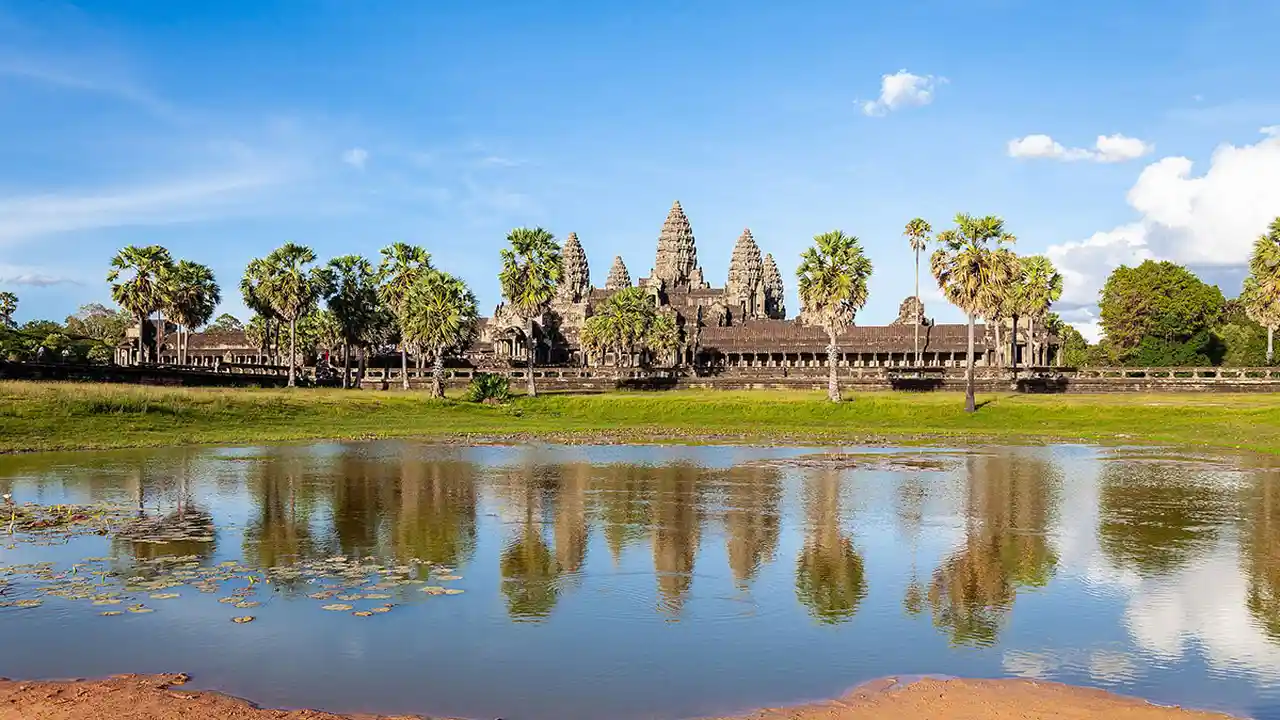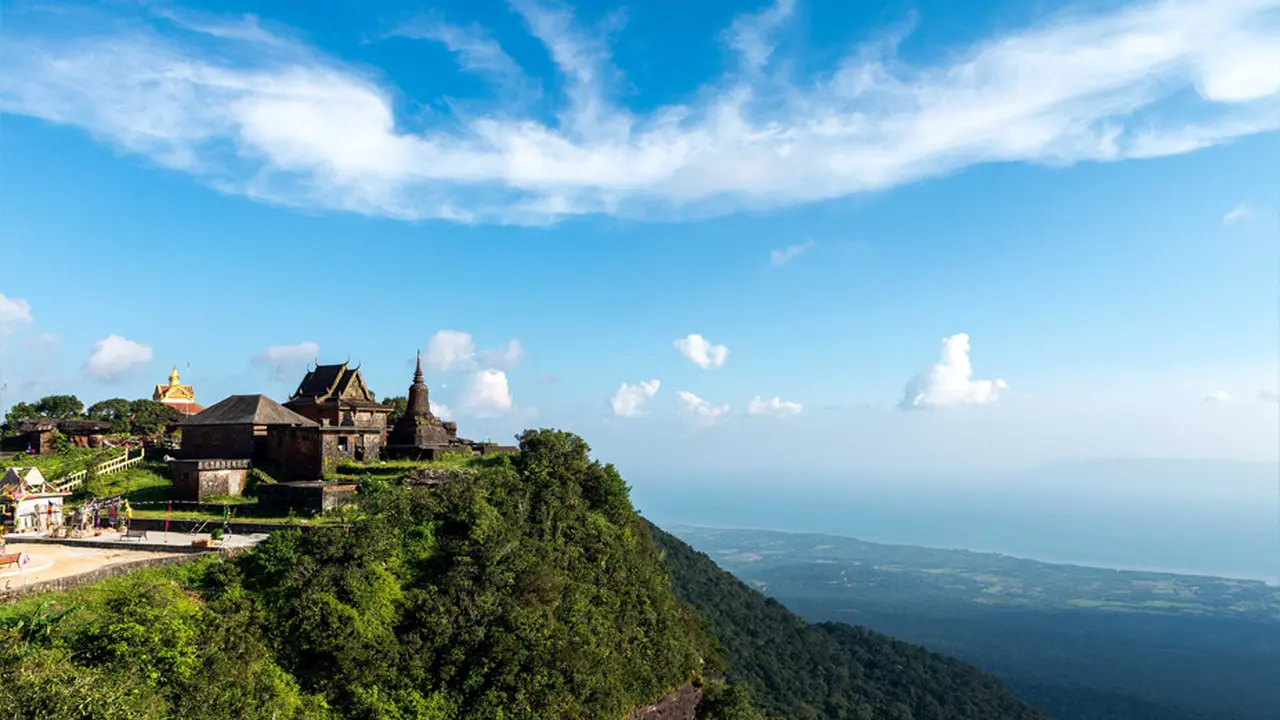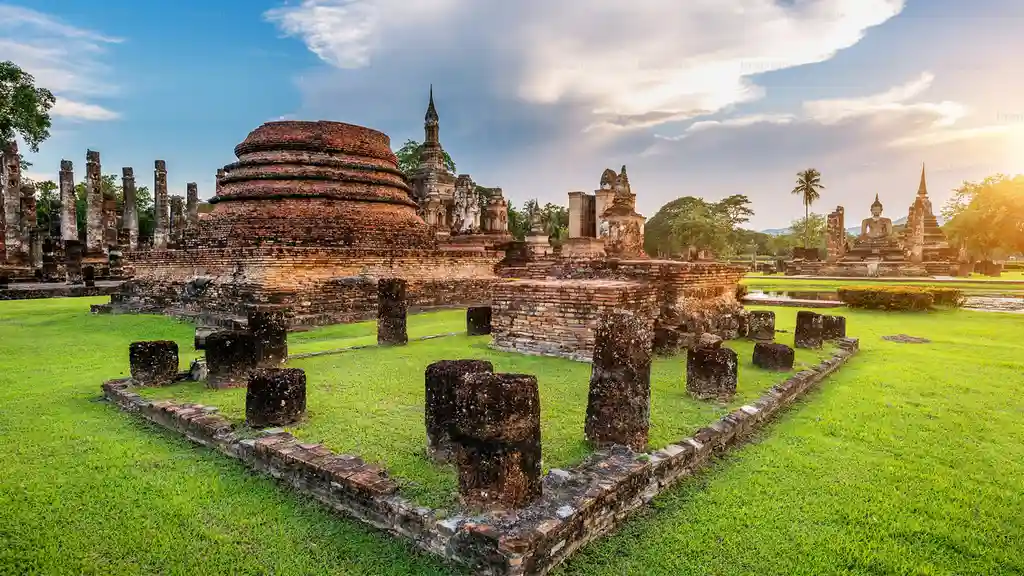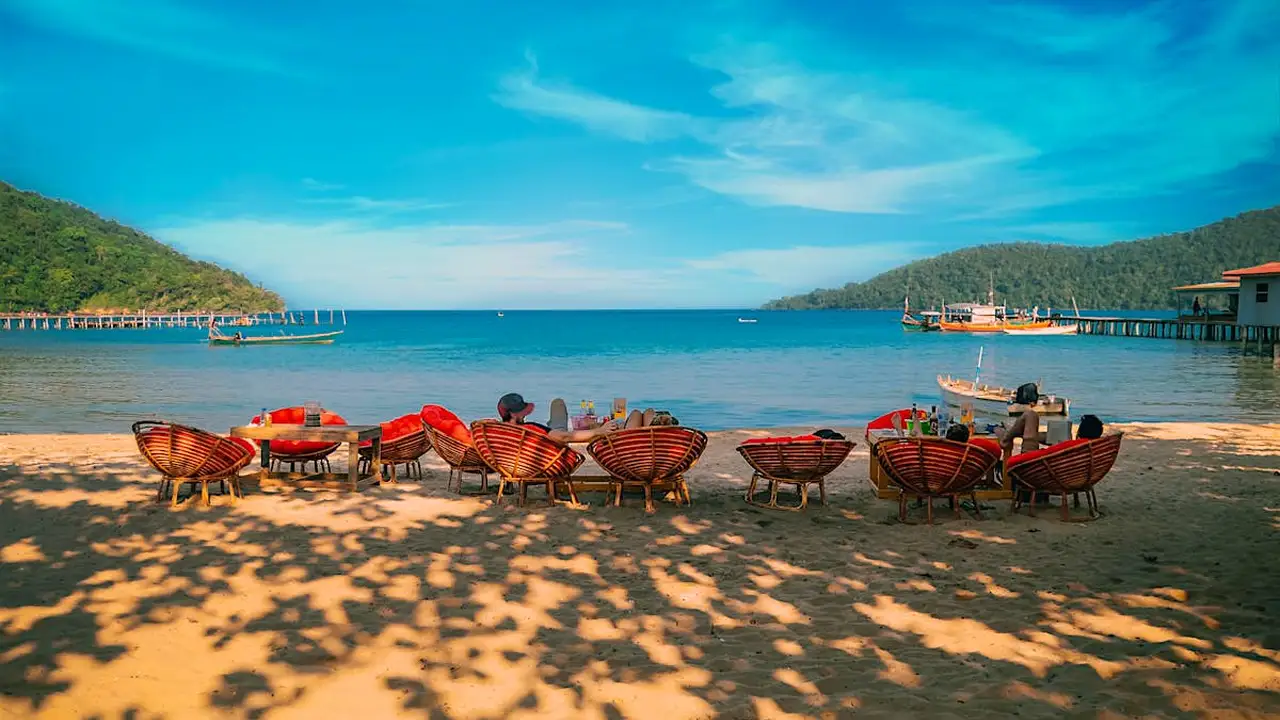Angkor Wat Sustainable Tourism: How US Visitors Can Help

Understanding the Importance of Sustainable Tourism in Angkor Wat Siem Reap
Hey there, fellow travelers! Angkor Wat, that magnificent temple complex in Cambodia, is a place that truly takes your breath away. But did you know that this UNESCO World Heritage site is facing some serious challenges? We're talking about over-tourism, environmental degradation, and impacts on local communities. That's where sustainable tourism comes in. It's all about minimizing the negative impacts of tourism and maximizing the positive ones. Think responsible travel that benefits both the environment and the people who call Angkor Wat home. It's not just a feel-good buzzword; it's crucial for preserving this incredible place for future generations.
The Challenges Facing Angkor Wat Tourism and the Role of US Visitors
So, what are the specific challenges? Well, imagine thousands of tourists descending on a fragile ecosystem every day. That's Angkor Wat in a nutshell. The sheer volume of visitors can lead to erosion, pollution, and damage to the temples themselves. Plus, the influx of tourists can sometimes disrupt local cultures and ways of life. But here's the good news: US visitors can play a HUGE role in helping. By making conscious choices about how we travel, where we stay, and what we buy, we can contribute to a more sustainable future for Angkor Wat. It's all about being mindful and respectful of the environment and the local community.
Practical Tips for US Visitors Embracing Eco-Friendly Angkor Wat Travel Experiences
Alright, let's get down to the nitty-gritty. How can you actually be a more sustainable tourist in Angkor Wat? Here are some practical tips:
- Choose Eco-Friendly Accommodation: Look for hotels and guesthouses that are committed to sustainable practices. Things like using renewable energy, conserving water, and supporting local communities are all good signs. Check out places like Jaya House River Park or Knai Bang Chatt. They're not just luxurious; they're also dedicated to responsible tourism.
- Support Local Businesses: Instead of buying souvenirs from big chain stores, head to local markets and artisan workshops. You'll find unique, handcrafted items and directly support the local economy. The Made in Cambodia Market is a great starting point.
- Minimize Your Waste: Bring a reusable water bottle and refill it whenever you can. Say no to plastic bags and straws. Pack light to reduce your carbon footprint. Small changes can make a big difference.
- Respect Local Culture: Dress modestly when visiting temples. Learn a few basic Khmer phrases. Be mindful of local customs and traditions. Showing respect goes a long way.
- Travel During the Off-Season: Visiting during the rainy season (May to October) can help reduce the pressure on the temples and support local businesses during their quieter months. Plus, the landscapes are lush and green!
- Consider Cycling or Tuk-Tuk Tours: Instead of relying on cars or buses, explore Angkor Wat by bicycle or tuk-tuk. It's a more environmentally friendly way to get around and you'll get a more authentic experience.
Exploring Angkor Wat's Sustainable Initiatives and Supporting Community Based Tourism
Many organizations are working hard to promote sustainable tourism in Angkor Wat. You can support their efforts by:
- Volunteering: Look for reputable volunteer organizations that are working on conservation or community development projects. Be sure to do your research and choose an organization that aligns with your values.
- Donating: Many local organizations rely on donations to fund their work. Even a small contribution can make a big difference.
- Spreading the Word: Tell your friends and family about the importance of sustainable tourism. Share your experiences on social media and encourage others to travel responsibly.
- Visiting Community-Based Tourism Projects: These projects are designed to benefit local communities directly. You can visit villages, learn about traditional crafts, and support local livelihoods. Check out places like Kampong Phluk floating village for a unique experience.
Recommended Sustainable Products for Your Angkor Wat Adventure and Their Usage Scenarios
Let's talk gear! Here are some specific products that can help you be a more sustainable traveler:
- Reusable Water Bottle: A must-have for staying hydrated and reducing plastic waste. Consider the Hydro Flask or Klean Kanteen. They're durable, insulated, and come in various sizes. Usage Scenario: Refill at your hotel, restaurants, or designated water stations throughout the Angkor Wat complex. Price: $30-$50.
- Bamboo Cutlery Set: Avoid using disposable plastic cutlery by bringing your own bamboo set. Look for sets that come with a carrying case for easy transport. Usage Scenario: Use at street food stalls or picnics. Price: $10-$20.
- Solid Shampoo and Conditioner Bars: Reduce plastic waste and save space in your luggage with solid shampoo and conditioner bars. Ethique and Lush offer great options. Usage Scenario: Use in your hotel shower. Price: $15-$25 per bar.
- Reef-Safe Sunscreen: Protect your skin and the environment with reef-safe sunscreen. Look for sunscreens that are free of oxybenzone and octinoxate. Think brands like Stream2Sea or Raw Elements. Usage Scenario: Apply before heading out to explore the temples. Price: $15-$30.
- Mosquito Repellent Wipes: Protect yourself from mosquito bites without using harsh chemicals. Look for wipes that contain natural ingredients like citronella or eucalyptus. Usage Scenario: Use in the evenings or in areas with dense vegetation. Price: $5-$10 per pack.
Comparing Sustainable Product Options and Making Informed Choices
Choosing the right sustainable products can be overwhelming. Here's a quick comparison to help you make informed decisions:
Reusable Water Bottles:
- Hydro Flask: Excellent insulation, durable, but can be pricey.
- Klean Kanteen: Durable, stainless steel, more affordable than Hydro Flask.
- Collapsible Water Bottles (e.g., Vapur): Lightweight, space-saving, but less durable.
Solid Shampoo and Conditioner Bars:
- Ethique: Wide variety of options, plastic-free packaging, great for different hair types.
- Lush: Fun scents, readily available, but some products contain SLS.
- Package Free Shop: Focuses on sustainable and ethical sourcing.
Reef-Safe Sunscreen:
- Stream2Sea: Biodegradable formula, safe for marine life, effective sun protection.
- Raw Elements: Mineral-based, water-resistant, good for sensitive skin.
- Badger Balm: Simple ingredients, certified organic, but can be thick and difficult to apply.
Engaging with Local Communities and Supporting Fair Trade Practices in Siem Reap
One of the best ways to make a positive impact is to engage with local communities and support fair trade practices. Look for opportunities to:
- Take a Cooking Class: Learn how to prepare traditional Khmer dishes and support local chefs. Many cooking classes source their ingredients from local markets.
- Visit a Local Farm: See how food is grown and learn about sustainable farming practices.
- Shop at Fair Trade Stores: Buy handicrafts and souvenirs from organizations that ensure fair wages and working conditions for artisans.
- Eat at Local Restaurants: Support family-run restaurants and sample authentic Khmer cuisine.
The Future of Angkor Wat Tourism and How US Visitors Can Contribute to its Preservation
The future of Angkor Wat depends on our collective efforts. By embracing sustainable tourism practices, supporting local communities, and making conscious choices, US visitors can play a vital role in preserving this incredible cultural heritage site for generations to come. It's not just about seeing the temples; it's about protecting them and ensuring that they remain a source of wonder and inspiration for all.
Specific Examples of Sustainable Tourism Initiatives in Angkor Wat
To further illustrate the impact of sustainable tourism, let's look at some specific examples of initiatives happening in Angkor Wat:
- APSARA Authority's Sustainable Tourism Plan: The APSARA Authority, the organization responsible for managing Angkor Wat, has developed a comprehensive sustainable tourism plan that focuses on reducing environmental impact, promoting cultural preservation, and supporting local communities.
- The Green Siem Reap Initiative: This initiative aims to reduce waste and promote recycling in Siem Reap. They provide training and resources to local businesses to help them adopt more sustainable practices.
- Community-Based Tourism Projects in Rural Villages: These projects offer visitors the opportunity to experience authentic Khmer culture and support local livelihoods. Visitors can stay in homestays, learn about traditional crafts, and participate in farming activities.
Addressing Common Concerns and Misconceptions About Sustainable Travel in Angkor Wat
Some people might think that sustainable travel is more expensive or less convenient. But that's not necessarily true. Here are some common concerns and misconceptions:
- "Sustainable travel is too expensive." While some eco-friendly options might be pricier, there are also many affordable ways to travel sustainably. Eating at local restaurants, using public transport, and staying in guesthouses can all save you money.
- "Sustainable travel is less convenient." It might require a bit more planning, but sustainable travel can actually be more rewarding. You'll have the opportunity to connect with local communities and experience authentic culture.
- "One person can't make a difference." Every little bit helps. Even small changes in your travel habits can have a positive impact.
The Long-Term Benefits of Sustainable Tourism for Angkor Wat and Its Local Communities
Sustainable tourism is not just about protecting the environment; it's also about supporting local communities and ensuring their well-being. By investing in sustainable tourism, we can create a more equitable and prosperous future for Angkor Wat and its people. The benefits include:
- Economic Growth: Sustainable tourism can create jobs and generate income for local communities.
- Environmental Protection: Sustainable tourism can help protect the environment and preserve cultural heritage.
- Cultural Preservation: Sustainable tourism can help promote and preserve local cultures and traditions.
- Improved Quality of Life: Sustainable tourism can improve the quality of life for local residents by providing access to education, healthcare, and other essential services.
The Role of Technology in Promoting Sustainable Tourism in Angkor Wat
Technology can play a significant role in promoting sustainable tourism. Here are some examples:
- Apps that provide information on eco-friendly accommodation and tours.
- Websites that connect travelers with local communities.
- Social media platforms that promote sustainable travel practices.
- GPS technology that helps monitor and protect natural resources.
Encouraging Responsible Souvenir Shopping and Supporting Local Artisans
Souvenir shopping can be a great way to support local artisans and bring home a piece of Angkor Wat. However, it's important to shop responsibly and avoid buying products that are harmful to the environment or exploit local workers. Here are some tips:
- Buy handicrafts from fair trade organizations.
- Avoid buying products made from endangered species.
- Support local artisans by purchasing directly from them.
- Choose souvenirs that are made from sustainable materials.
Promoting Responsible Wildlife Tourism and Avoiding Animal Exploitation
Wildlife tourism can be a great way to experience the natural beauty of Angkor Wat. However, it's important to choose responsible tour operators and avoid activities that exploit animals. Here are some tips:
- Avoid riding elephants or visiting animal shows.
- Choose tour operators that prioritize animal welfare.
- Report any instances of animal cruelty.
- Support organizations that are working to protect wildlife.
The Importance of Education and Awareness in Fostering Sustainable Tourism
Education and awareness are essential for fostering sustainable tourism. By educating travelers and local communities about the importance of sustainable practices, we can create a more responsible and sustainable tourism industry. This can be achieved through:
- Providing information on sustainable travel practices.
- Supporting educational programs in local communities.
- Raising awareness about the impacts of tourism.
- Encouraging travelers to make informed choices.
Collaborating with Local Stakeholders to Develop Sustainable Tourism Strategies
Sustainable tourism requires collaboration between all stakeholders, including government agencies, tour operators, local communities, and travelers. By working together, we can develop sustainable tourism strategies that benefit everyone. This includes:
- Involving local communities in decision-making processes.
- Working with tour operators to promote sustainable practices.
- Partnering with government agencies to implement sustainable policies.
- Engaging travelers in responsible tourism initiatives.
Measuring the Impact of Sustainable Tourism Initiatives and Tracking Progress
It's important to measure the impact of sustainable tourism initiatives and track progress over time. This allows us to identify what's working and what's not, and make adjustments as needed. This can be achieved through:
- Collecting data on environmental impact.
- Monitoring economic benefits for local communities.
- Assessing the impact on cultural preservation.
- Gathering feedback from travelers and local stakeholders.
Inspiring Action and Empowering US Visitors to Become Sustainable Ambassadors for Angkor Wat
Ultimately, sustainable tourism is about inspiring action and empowering individuals to become sustainable ambassadors for Angkor Wat. By making conscious choices and spreading the word, we can all contribute to a more responsible and sustainable future for this incredible cultural heritage site. So, pack your bags, grab your reusable water bottle, and get ready to explore Angkor Wat in a way that benefits both the environment and the local community!
:max_bytes(150000):strip_icc()/277019-baked-pork-chops-with-cream-of-mushroom-soup-DDMFS-beauty-4x3-BG-7505-5762b731cf30447d9cbbbbbf387beafa.jpg)






-for-US-Visitors.webp)